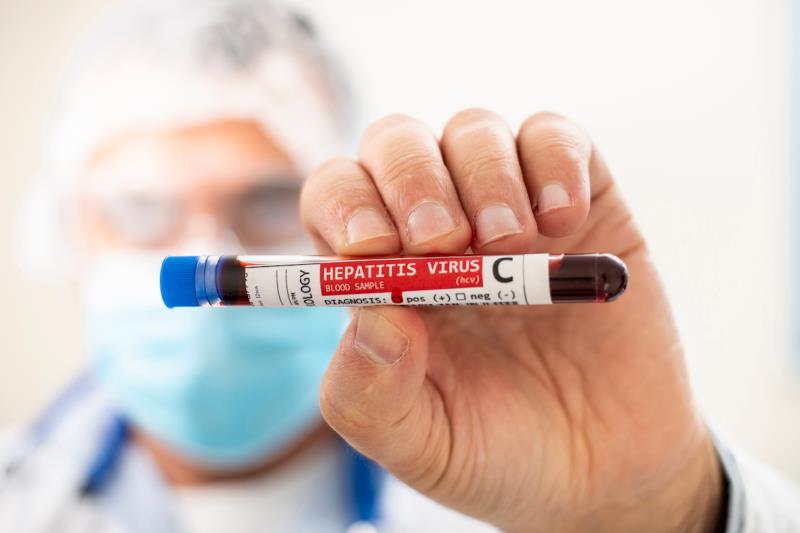Decentralized HCV testing is key to finding the missing millions





The Foundation for Innovative New Diagnostics (FIND) in partnership with the World Hepatitis Alliance (WHA) and the Drugs for Neglected Diseases initiative (DNDi) organized a webinar on 30 July 2020, in conjunction with World Hepatitis Day which showcased preliminary outcomes from the Unitaid-supported Hepatitis C Elimination through Access to Diagnostics (HEAD-Start) project. The Ministry of Health (MOH) representatives from each project country, including Malaysia, presented project outcomes from their respective country.
More than 70 million people are estimated to be living with hepatitis C, but as of 2016 less than 15 percent have been diagnosed. [WHO. Progress Report on Access to Hepatitis C Treatment Focus on Overcoming Barriers in Low- and Middle-Income Countries. Available at: https://apps.who.int/iris/bitstream/handle/10665/260445/WHO-CDS-HIV-18.4-eng.pdf?sequence=1&isAllowed=y Accessed on 27 August 2020]
“In order to reach the WHO 2030 target of diagnosing 90 percent of those infected with HCV (hepatitis C virus), we have quite a way to go,” said Sonjelle Shilton, deputy head, HCV Access, FIND, in her opening remarks.
“We need to find the missing millions, link them to care, and we need to do this in a cost-efficient manner,” Shilton said.
She added cost-efficiency is important in public health programmes especially for hepatitis C due to a lack of global funding bodies, and reliance on governments’ domestic budgets which can be constrained. Evidence from HEAD-Start indicated that the most cost-efficient manner of providing hepatitis C care is through decentralized risk-based screening and treatment at easy to access healthcare facilities.
About HEAD-Start
The HEAD-Start project commenced in 2017 with the following objectives [Available at: https://www.finddx.org/hcv-hiv/head-start/ Accessed on 1 September 2020]:
1. Accelerate diagnostic pipeline (R&D) to increase diagnostic tools available for use in decentralized, simplified, integrated HCV diagnostic algorithms.
2. In-country work preparing the market for use of decentralized, simplified, integrated HCV diagnostics.
3. Market forecasting on HCV diagnostics.
4. Evidence sharing to inform global, regional, and country policies to support the use of decentralized, simplified, and integrated HCV diagnostics.
By end of 2020, the HEAD-Start project will reach its conclusive stage. During this rich journey of over 3 years, FIND explored the effectiveness of various diagnostic pathways and models of care for HCV in Malaysia, Georgia, Myanmar, and Punjab, Delhi and Manipur in India. The project enrolled about 600 to almost 39,000 patients at each site and generated some unprecedented evidences to inform global to local policy. FIND has been exploring the feasibility of HCV self-testing and has completed prospective observational studies in five countries using the oral fluid test.
Dr Philippa Easterbrook, of the Global Hepatitis Program, WHO, thanked Unitaid for supporting HEAD-Start with FIND and previously supporting Médecins Sans Frontières (MSF) to conduct work on hepatitis C. “For WHO and Global Hepatitis Program this has been a close and important partnership at every step of the way from planning and protocol development, project implementation, monitoring and evaluation and analysis with many joint missions, and this has been a great privilege to be part of this collaboration from start to finish.”
HEAD-Start in Malaysia
The HEAD-Start project has been successful in Malaysia due to the collaboration of various organizations, including MOH, FIND and DNDi with the objective of eliminating hepatitis C, said Datuk Dr Muhammad Radzi Abu Hassan, national head, Gastroenterology and Hepatology Services, MOH, and head of Clinical Research Centre, Hospital Sultanah Bahiyyah, Alor Setar, Kedah.
“The key principle in this project is how to simplify, decentralize and integrate HCV testing to drive hepatitis C elimination to be a success. These are the same principles used and tailored towards Malaysia,” said Radzi.
The HEAD-Start project addressed both technology and implementation gaps. Settings involved secondary and primary facilities, and national reference laboratory while activities involved a hub-spoke model with decentralized confirmation and integration in existing polyvalent central platforms.
Out of 15,413 people screened for HCV, 2,064 were confirmed positive where 75 percent received confirmatory testing. Out of those who were confirmed positive, three quarters were treated. The results were derived despite problems related to resources and infrastructures. Radzi said: “This is a tremendous achievement.”
He said the HEAD-Start project has had a huge impact on current practice and on determining the directions of HCV elimination strategy in Malaysia. Also, the project has been pivotal in reducing costs from more than US$40 to identify one positive patient to below US$7 to identify one positive patient using a risk-based screening approach.
He concluded the HEAD-Start project has proven that “we need to simplify, decentralize and also integrate all the services relevant to hepatitis C.” MOH has adopted the strategy since end 2019 by decentralizing care for hepatitis C throughout Malaysia. So, all the healthcare facilities have already started testing and treating hepatitis C, and this model has also been extended to other institutions such as prisons and rehabilitation centres.
For further information on the World Hepatitis Day 2020 webinar, go to: https://www.finddx.org/newsroom/whd-2020/